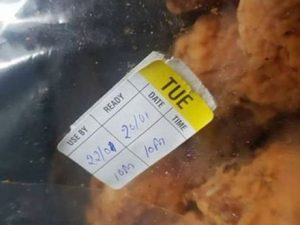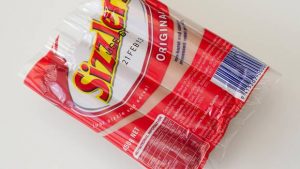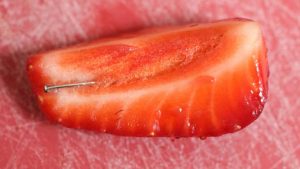Hamish McNeilly of Stuff reports a new bistro in Otago that opened less than two weeks ago has been forced to close because of “turds, toilet paper, and p….”.
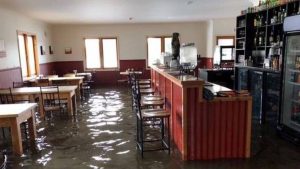 The word is poop.
The word is poop.
Tap & Dough owner Norma Emerson is unsure when, or even if, the fledgling Middlemarch business will open its doors again.
Business had been “going well” until Tuesday night, Emerson said.
Otago bistro Tap & Dough opened on November 10, but was forced to close after floodwater and sewage flowed through the building.
“We expected to see, at the most, a little water in. What we did not expected was the sewage.”
Just metres from the business at the corner of Mold St and Snow Ave, raw sewage overflowed in the rising waters.
Floodwater and raw sewage flowed through The Tap & Dough.
Emerson and her brewer husband, Richard, spent about $150,000 fitting out the leased property, which opened on November 10.
But on Wednesday, decontaminating contractors were removing carpets, wall linings and wood panelling.
“This is a major job. We had turds in here, and all over the carpet.”
When she realised raw sewage was “lapping” at the doors on Tuesday, she called for help.
“I did what any reasonable citizen would do, and rung emergency services”.
Emerson said she was upset by a comment from local Strath Taieri board chairman Barry Williams as volunteers from the fire brigade helped pump water from the bistro.
“He went to the fire brigade and said ‘why are the Emerson’s getting preferential treatment?”‘
“Do I not have a right to protect my property, I’m furious about that.
“It is an emergency when s…., turds, toilet paper, and p…. flow through your door at an eating establishment, at which you have just spent $150,000 on refurbishing.”
The word is shit.
Williams told Stuff he did not recall the incident unfolding that way.
“That’s bloody strange,” he said.
He maintained he asked the volunteer firefighters to pump the excess water into an open ditch, rather than the side of the street.
Williams said he hoped to clear the air with Emerson, “or she could call me”.
It was one of several businesses impacted by sewage in the town, a popular start/finishing point for the Otago Central Rail Trail – about 80km from Dunedin.
On Tuesday a Dunedin City Council spokeswoman said three streets in Middlemarch were closed due to surging from the wastewater network, with a pump used to provide extra capacity.
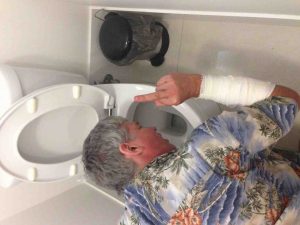 Melanie Earley of Stuff reports 28-year-old Michael Luke Robertson allegedly fled from Avondale Police station on Tuesday morning by pretending he was about to vomit.
Melanie Earley of Stuff reports 28-year-old Michael Luke Robertson allegedly fled from Avondale Police station on Tuesday morning by pretending he was about to vomit.


